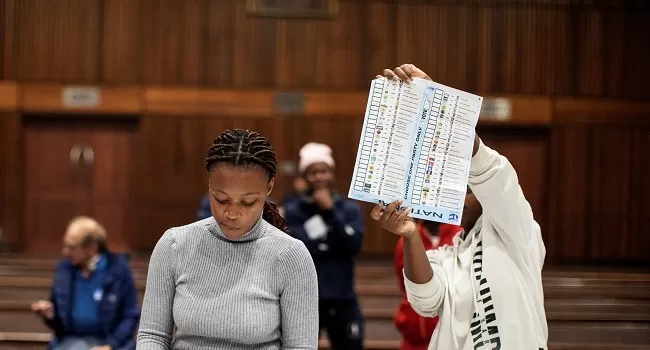What We Know About The South Africa Election

The 2024 South African general election, held on May 29, marked a significant shift in the country’s political landscape. The ruling African National Congress (ANC), for the first time in 30 years since the end of apartheid, lost its absolute majority in parliament. This comes as a seismic moment for South Africa, reflecting the changing political dynamics in the nation.
The ANC, which had won all national elections since 1994, secured only 159 seats in the 400-seat parliament, a substantial drop from its previous performance. This outcome was attributed to several factors, including the ANC’s failure to address the country’s economic challenges, the emergence of new political parties, and the ANC’s internal divisions.
The election saw a rise in support for the MK party, led by former President Jacob Zuma, and the Democratic Alliance (DA), a center-right party largely supported by the white minority. The MK party, in particular, made significant gains in the coastal eastern province of KwaZulu-Natal, traditionally an ANC stronghold.
The results have set the stage for coalition negotiations, a new phenomenon in South African national politics. The ANC, now needing to form alliances to govern effectively, faces the challenge of finding common ground with parties that have emerged from its own ranks or are fundamentally opposed to its policies.
The election also saw a high voter turnout, with nearly 28 million people registered to vote. This reflects a strong public interest in the political process and a desire for change among the electorate.
The coming weeks and months will be crucial as the ANC and other parties navigate the uncharted territory of coalition government in South Africa. The outcome of these negotiations will have significant implications for the country’s future direction and governance.






